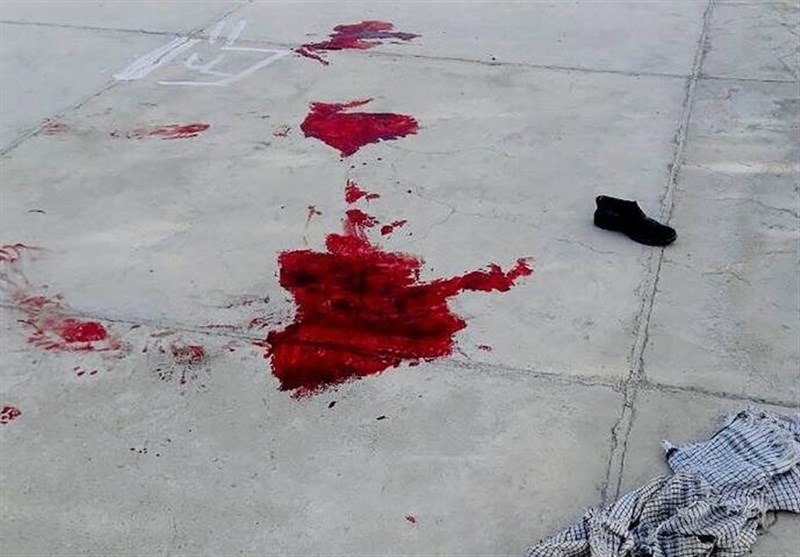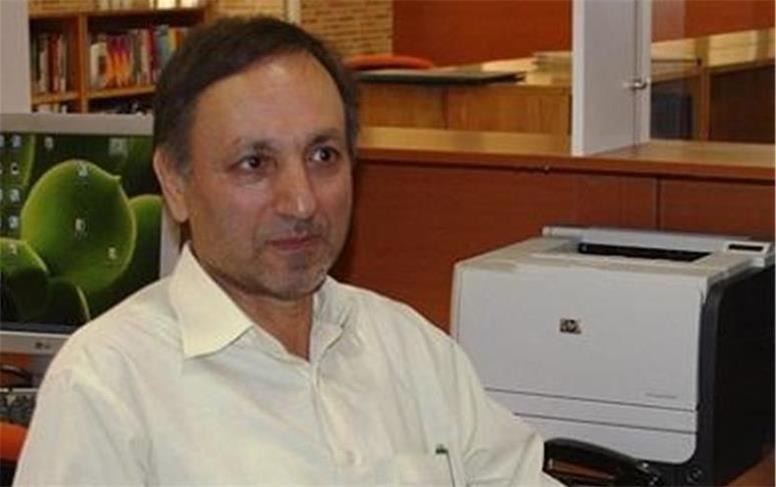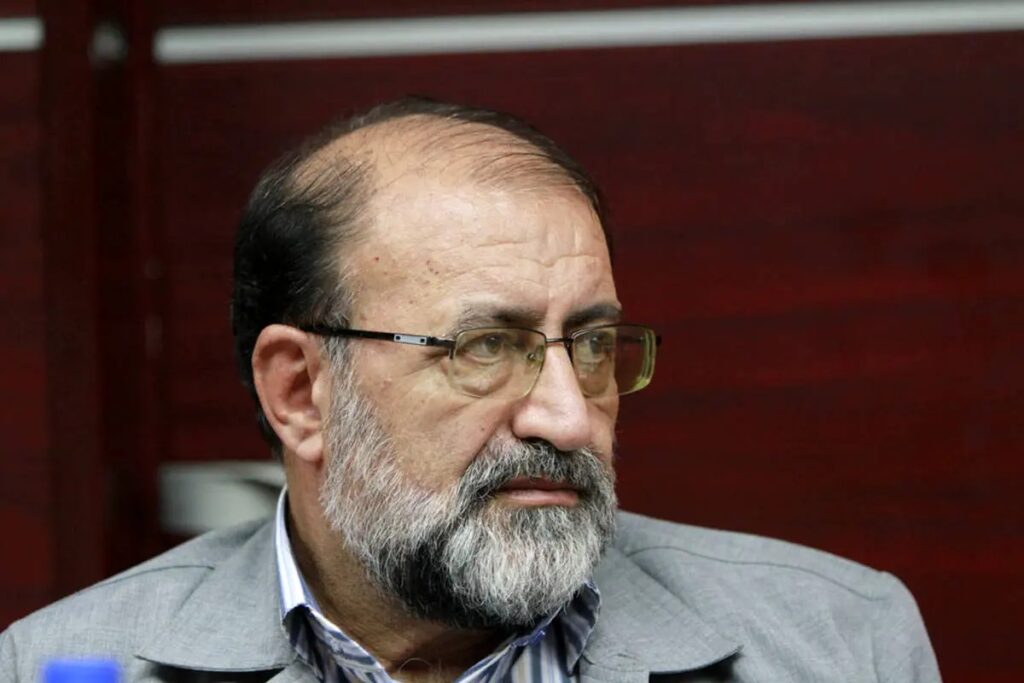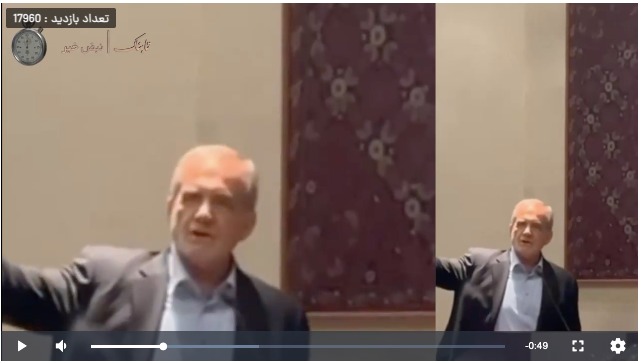
People’s Concerns About the Present and the Future
In an editorial published in Setar-e Sobh, the Secretary-General of the Society of Former Parliamentarians Yadollah Eslami reflected on the ongoing turmoil in the Middle East, particularly in the aftermath of the October 7, 2023 Hamas attack on Israel. Eslami noted how this year, marked by bloodshed, continues a long history of anger and violence in the region. He highlighted how, following the attack, celebrations were organized in Palestine Square, with fireworks lighting the sky. However, he expressed regret that little thought was given to the inevitable destructive retaliation from Israel. Despite Iran and Hezbollah distancing themselves from the attack, they lacked the decisiveness to find a solution during the crisis, leading to further hostility and unprecedented destruction in Gaza and Lebanon.
The editorial raised the issue of how shrewd players in the region took advantage of the situation, securing gains while the losses for Lebanon, Iran and the region as a whole mounted. Eslami discussed the costly consequences for the Iranian people, as national resources were drained to support the conflict. He emphasized the futility of war, describing its devastating effects, and noted that no matter how many times a misguided path is taken, the outcome remains unchanged.
The editorial added that in such volatile situations, many would boast and provoke further conflict, while colorful analyses would continue to emerge. Despite this, he argued that reason must take precedence, and the repercussions of poor decisions should be thoroughly examined. He warned that continuing on the same destructive path would only bring more suffering to the region.
The editorial also discussed Israel’s longstanding efforts to build intelligence capabilities and infiltrate political structures in countries such as Lebanon and within Hezbollah. Eslami pointed out that Israel’s strategic moves have entrapped various regional politicians and institutions in its security webs. Meanwhile, Iran and its allies focused on slogans and emotional responses, missing significant opportunities for Lebanon, Iran, and the broader Middle East.
The editorial referred to the archives of “reformist” newspapers like Setar-e Sobh, which had warned from the very first day of the Hamas attack on Israel that it would likely bring severe consequences for Gaza, Lebanon, and potentially Iran. As the war approaches its one-year anniversary, he said, these predictions have proven to be accurate. He concluded by highlighting the growing concern among Iranians over the possibility of their country becoming further involved in the conflict, reflecting widespread public anxiety over the future.
Breaking the Promise
In an editorial published in Jahan-e Sanat, labor activist Hamid Haj Esmaili raised concerns about the Planning and Budget Organization’s recent proposal to increase employee wages by 20%. Esmaili noted that this decision from the government is concerning, especially given the current levels of inflation and high prices. He emphasized that repeating the same 20% figure as in previous years does not adequately address the livelihood issues faced by the people. In past years, similar increases were implemented despite inflation rates exceeding this percentage, and the editorial noted that the current government has not introduced any meaningful changes to improve conditions for employees.
The editorial raised the issue of how this wage proposal, though potentially subject to change in Parliament, reflects the government’s reluctance to provide sufficient support for employees. Esmaili argued that the government is failing to align wages with the realities of inflation and the economic challenges workers face. The editorial discussed how this situation is particularly bad news for retirees and salaried employees, many of whom rely on stable, adequate income increases to cope with rising living costs.
The editorial added that the government typically approves figures proposed by the budget organization based on projected income sources, and the Planning and Budget Organization plays a key role in these calculations. Esmaili noted that this creates a precedent where the figures announced by the organization are often considered final unless modified by Parliament. This process frequently leads to disputes between the Parliament and the government, and Esmaili warned that such disagreements are likely in this case as well.
The editorial discussed how this wage proposal is likely to generate further protests and criticism against the new government. The government came to power with promises of improving the situation for employees and salary earners, but the article argued that the 20% wage increase signals that these promises are not being fulfilled. Esmaili expressed frustration that the government appears to have no concrete plan to adjust salaries in line with inflation, and by proposing this modest increase, it is disregarding the slogans it used during the election campaign.
The editorial further stressed that such a proposal will do little to alleviate the economic pressure on workers, and it reinforces the perception that the government is not committed to meaningful wage reforms. This could lead to growing dissatisfaction and protests from labor groups who feel let down by the government’s inaction on salary issues.
The Compromise or Undermining of Iran’s Independence by China
An editorial written by Mohammad-Sadegh Janan-Saffat in Jahan-e Sanat discussed how Iran’s independence, once a central tenet of the 1979 revolution, had been compromised due to its growing reliance on China.
The article noted that the revolution’s slogan, “Independence, Freedom, and the Islamic Republic,” aimed to end Iran’s dependence on Western powers, particularly the United States The article also added that in the years following the revolution, the country shifted from a “Neither East nor West” policy to a more Eastern-oriented approach, as evidenced by Iran’s current reliance on China for trade.
The editorial explained that China’s dominance over Iran’s oil market was a key example of how the nation’s economic independence had eroded. With China purchasing Iranian oil at below-market prices, Iran became heavily dependent on this single buyer. Furthermore, China’s communist leadership could cut off these purchases at any time, leaving Iran vulnerable.
The editorial discussed how, beyond oil, China’s influence also extended to other sectors. By keeping Iranian oil revenues in Chinese banks and forcing Iran to buy Chinese goods, Beijing deepened Tehran’s dependence. Chinese goods, such as cars and household appliances, flooded Iranian markets, further undermining Iran’s self-sufficiency.
The editorial raised the issue of a controversial 25-year deal between Iran and China, noting that Chinese leaders had pressured Iranian officials to withhold details of this agreement from the public. This secrecy heightened concerns about Iran’s loss of sovereignty.
The editorial also highlighted China’s political maneuvering, pointing out that Chinese officials had openly supported the UAE in the territorial dispute over three islands in the Gulf. This stance, combined with China’s growing role in Iran’s economy, suggested that Iran’s independence was increasingly compromised.
We Seek a Good Life
An editorial by Yadollah Eslami in Setar-e Sobh noted the urgency of the people’s desire for a peaceful life filled with the benefits of a good existence. Living amidst constant tension and crises — such as the fear of war, contamination from regional and global conflicts, devastating sanctions, rampant corruption, imprisonment, and societal fears — has deprived citizens of the opportunity for a fulfilling life. This state of turmoil raises critical questions about the future and well-being of society.
The editorial added that establishing understanding between the government and society is essential for improving the current crises. A mutual agreement is necessary for both parties to transition from a state of crisis to a more natural and stable situation. The election of Masoud Pezeshkian could represent a pivotal moment that might facilitate a shift toward reasoned governance, potentially alleviating difficulties and creating a more peaceful life for the populace.
The editorial raised the issue of Pezeshkian’s recent comments in New York, which highlighted the importance of dialogue based on mutual interests. His discourse underscored the need for cooperation and engagement, emphasizing that all factions of power must unite to work toward a common goal: a better life for the people. This objective aligns with the fundamental rights of citizens and the electoral promises made by the current administration. It is crucial not to squander this rare opportunity for progress.
The editorial discussed the urgency of the situation, stating that the chance for meaningful change is fleeting. It is imperative for the government to act swiftly and decisively, as the prevailing challenges are significant but not insurmountable. The public is tired of living in fear — fear of armed conflict, economic collapse, and the loss of their basic rights. Such anxiety has affected individual well-being and the fabric of society, leading to a pervasive sense of hopelessness.
The editorial noted that restoring hope is possible if the government prioritizes dialogue over conflict and cooperation over division. Pezeshkian’s focus on diplomacy represents a potential turning point in a landscape dominated by despair. His approach, characterized by a commitment to rational solutions and public welfare, could guide the nation toward a path of recovery, steering away from further disaster and turmoil.
The editorial added that the people deserve a government that listens and responds to their concerns. They have a right to live free from fear and the burdens imposed by constant conflict and economic strife. The vision of a better life for citizens is not merely a political aspiration but a fundamental human right that must be pursued vigorously.
The editorial raised the issue that collective efforts from all sectors of society are necessary for success, hinging on collaboration and a shared vision. The current crises offer a significant opportunity for both the government and citizens to engage in constructive dialogue and work together toward a common future. Every day that passes without progress is a day lost forever, further entrenching the existing challenges.
The editorial discussed that the stakes have never been higher, emphasizing that the time for action is now. The rewards of successful governance — a peaceful, prosperous, and stable society — are well worth the effort. As the country stands at this crossroads, it must not allow this opportunity for renewal to slip away. The potential for a brighter future hinges on the choices made today.

Iranian Weightlifter Disappears in Spain

Sajjad Anoushirvani, the head of the Iranian Weightlifting Federation, has addressed the concerning disappearance of athlete Fatemeh Keshavarz during the Youth World Weightlifting Championships in Spain. He provided insights during an interview with ISNA, revealing that the incident coincided with competitions featuring fellow Iranian athletes Haniyeh Sharifi and Alireza Abaspour. Keshavarz had reportedly informed her teammates of a headache, requesting an hour of rest before joining them in the competition hall.
The urgency of the situation escalated when Anoushirvani received a call in the afternoon indicating that Keshavarz might have left the hotel. He promptly urged the coaching staff to alert the police. A security representative was also on-site to implement necessary protocols. Addressing inquiries about Keshavarz’s passport and belongings, Anoushirvani clarified that the passports of the female athletes were in the possession of their coach. Meanwhile, the male athletes’ passports were managed by the coach of the men’s team.
The head coach, Ms. Asfouri, discovered that her suitcase had been searched and found Keshavarz’s passport missing; however, Keshavarz did not take her suitcase, only a few items of clothing. A formal complaint has been lodged with the police, while Iran’s ambassador to Spain was present at the venue for the medal ceremony and has been actively involved in the investigation.
Anoushirvani expressed disbelief regarding Keshavarz’s disappearance, noting her previous positive track record in competitions without any issues. He reached out to Keshavarz’s family, who have yet to hear from her and share his concerns. The athlete’s phone remains turned off, hindering communication efforts. Authorities are taking all necessary steps to locate her and ensure her safety, emphasizing the need for a swift resolution to the distressing situation. The federation continues to monitor the developments closely, hoping for a positive outcome in the search for Keshavarz.
The President Weakens Hezbollah

In a recent session of the Iranian Parliament, Mujtaba Rahmandoust raised concerns about the treatment of war veterans and their families. He emphasized the importance that countries worldwide place on supporting their veterans and criticized the prior management of the Foundation of Martyrs and Veterans Affairs for complicating the allocation of minimum rights to jobless veterans. According to him, this management erroneously implemented a tiered system that contradicted the stipulations of Article 88 of the Sixth Development Plan, which mandates basic rights for unemployed veterans.
Rahmandoust, representing Tehran, Rey, Shemiranat, Islamshahr and Pardis, pointed out that addressing the status of veterans in the 2024 budget was necessary, as it had been in previous budgets for 2021 and 2022. He also directed a warning to the president, urging him to utilize qualified advisors, particularly as he is a physician with limited political experience.
Rahmandoust criticized the president’s remarks during his recent trip to New York, where he suggested a conditional disarmament agreement with Israel and stated that Hezbollah cannot stand against Israel. He also lamented the president’s collaboration with an aide who claimed he was barred from entering the United States.
Yet, Rahmandoust expressed gratitude that the president recognized the insincerity of US promises regarding a ceasefire in Gaza following the assassination of Palestinian leader Ismail Haniyeh.
Pezeshkian’s Warning About the Disintegration of Iran in New York

An unofficial video featuring President Masoud Pezeshkian during a dinner with a group of Iranian expatriates in the United States has circulated online. In this video, Pezeshkian issues a grave warning regarding the potential disintegration of Iran, stating that if significant events occur, there may no longer be an “Iranian” identity. He expressed concerns that regions such as Azerbaijan, Kurdistan, Khuzestan and Balochistan could establish their own governments, leading to a fragmented nation.
Pezeshkian emphasized that in the event of conflict, the preservation of a unified Iran would not be prioritized, and each area might assert its own power, resulting in chaos and disorder. He reiterated the importance of fostering unity and solidarity within the country, asserting that he does not wish for Iran to descend into turmoil.
Terrorist Attack in Nikshahr — Four People Martyred

In a recent terrorist attack in Nikshahr’s Bent region, four people lost their lives, and two others were injured following a local ceremony known as Shour-e Aatefah, which took place at the Mohseni School in the area. This tragic incident highlights the ongoing security challenges faced by the region.
According to reports from Tasnim News Agency, the attack was carried out by armed groups acting as proxies for external adversaries. Among the victims was Youssef Shirani, the local head of the Islamic Council in Bent, a native of the area. He was killed along with Parviz Kadhkhodai, the commander of the Islamic Revolutionary Guard Corps (IRGC) in Bent, and two conscripts named Javad Sadati and Mojib Baluchi.
Local authorities have condemned the attack, emphasizing the need for unity against such acts of violence. The incident reflects the heightened tensions in the region and the continuing threat posed by terrorist organizations. Iranian officials have previously stated that these groups seek to destabilize the region and undermine national security.
The attack follows a series of incidents that have raised concerns about safety and security in southeastern Iran, particularly in areas like Nikshahr, which have been targeted due to their strategic significance. The government has reiterated its commitment to combat terrorism and protect its citizens from such attacks.
